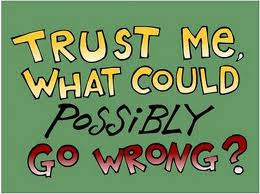Despite the fact that it was fraught with a marking load I would not wish on anyone, my career as an English teacher offered many satisfactions, not the least of which was the opportunity to explore issues that are increasingly considered off-limits in the classroom: contemporary politics, the use and abuse of language for manipulative and sinister purposes, environmental degradation, etc., all within the context of the literature we were studying. However, by the time I retired six years ago, thanks to curriculum changes in Ontario, many disciplines became locked in a race to cover the material at the expense of what I would consider an essential part of learning: an open and informed discussion and the concomitant development of critical thinking skills. Structure began to supplant imagination, and I think students became the poorer for it.
I recently came across a very interesting interview on Alternet with Noam Chomsky, the famed linguist, political commentator, activist, and iconoclast. A man rarely heard these days in the mainstream media thanks to his seemingly endless capacity to challenge what passes for conventional wisdom, Chomsky reflects on his own upbringing and education, and has some very pointed observations about the current overemphasis on test results:
...the great educational innovation of Bush and Obama was 'no child left behind'. I can see the effects in schools from talking to teachers, parents and students. It's training to pass tests and the teachers are evaluated on how well the students do in the test - I've talked to teachers who've told me that a kid will be interested in something that comes up in class and want to pursue it and the teacher has to tell them - ' you can't do that because you have to pass this test next week'. That's the opposite of education.
Chomsky suggests that at its best, education is essentially subversive, in that it challenges the corporate demand for trained but passive and submissive workers. The cultivation of such an education model is regarded dimly by the elite, a fact he demonstrates by reference to a report and book produced in 1975 for the Trilateral Commission called The Crisis of Democracy. Its conclusion? ... the problems of governance "stem from an excess of democracy" and thus advocates "to restore the prestige and authority of central government institutions."
Says Chomsky:
[The] commission that put together this book was concerned with trying to induce what they called 'more moderation in democracy' - turn people back to passivity and obedience so they don't put so many constraints on state power and so on. In particular they were worried about young people. They were concerned about the institutions responsible for the indoctrination of the young (that's their phrase), meaning schools, universities, church and so on - they're not doing their job, [the young are] not being sufficiently indoctrinated. They're too free to pursue their own initiatives and concerns and you've got to control them better.
That an independent-thinking citizenry should be regarded as a threat speaks volumes about the power of a real education. I'm glad I was a part of it for 30 years, and while I ardently hope that a reasonable balance can be struck between the needs of industry and the larger needs of society, I must confess that I am not especially hopeful about education's future.







